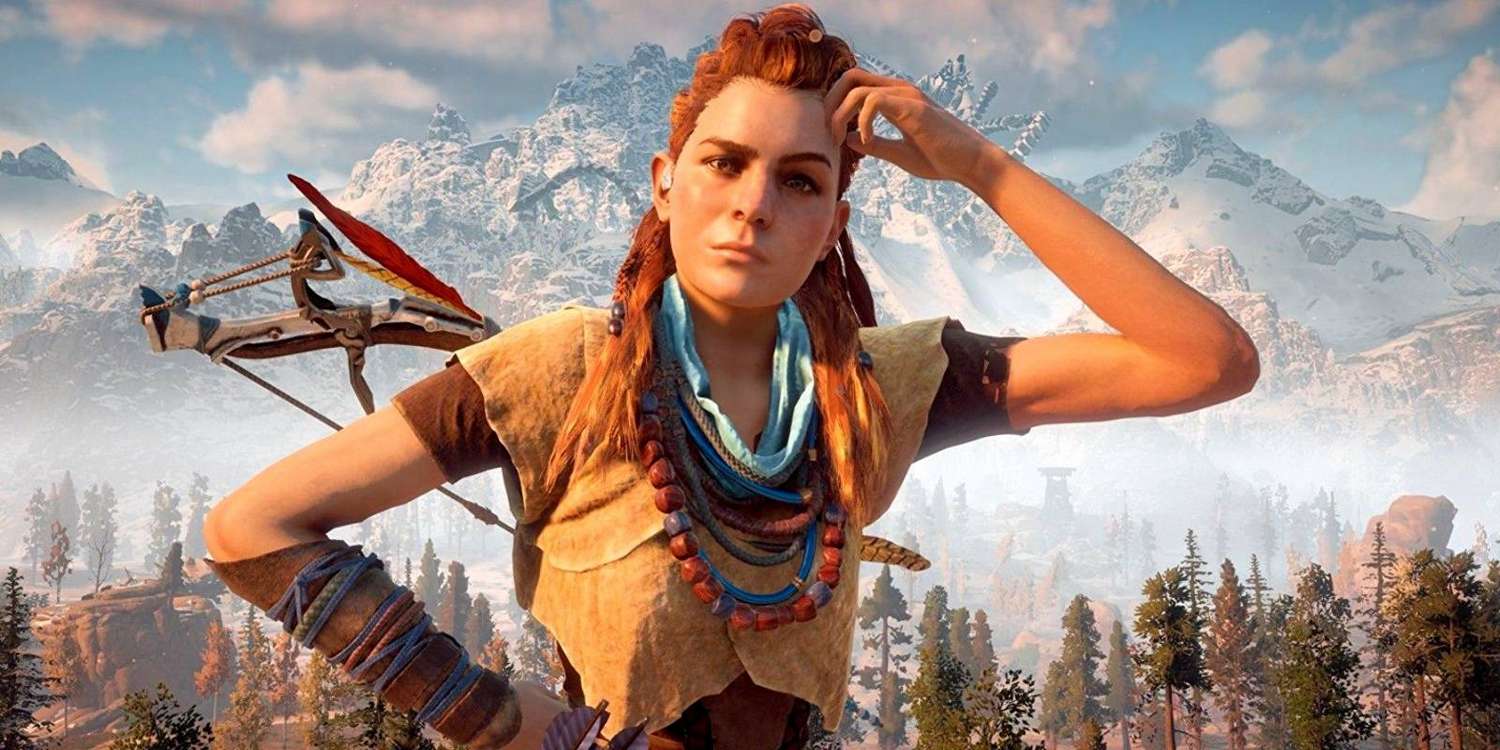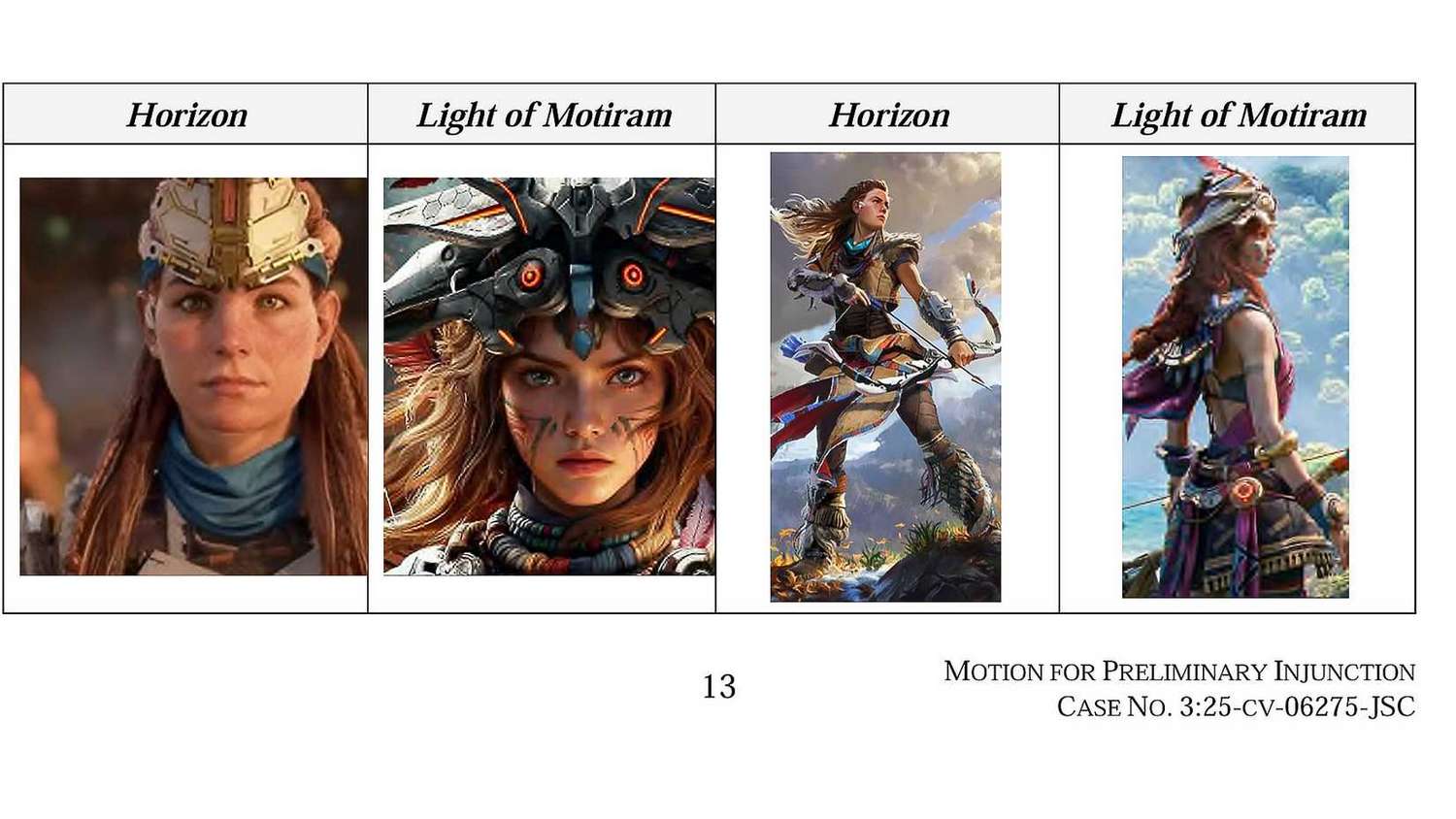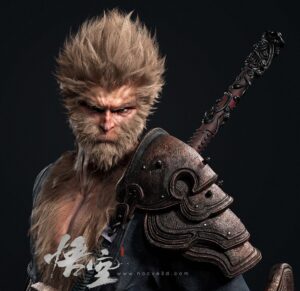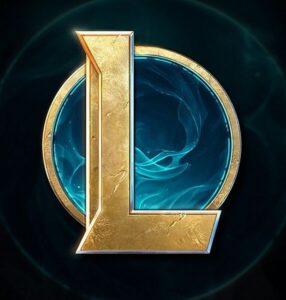Gaming IP Showdown: Sony Escalates Legal Battle, Seeks Preliminary Injunction Against Tencent’s ‘Horizon’ Rival
Popular Now
 Gacha Club
Gacha Club
 Warframe
Warframe
 Fall Guys
Fall Guys
 Toca Boca World
Toca Boca World
 Black Myth: Wukong
Black Myth: Wukong
 Valorant
Valorant
 Stumble Guys
Stumble Guys
 Brawl Stars
Brawl Stars
 CarX Street
CarX Street
 Sonic the Hedgehog™ Classic
Sonic the Hedgehog™ Classic
 San Francisco, CA – The high-stakes legal confrontation between Sony Interactive Entertainment (SIE) and Chinese tech behemoth Tencent Holdings Ltd. has intensified this week. SIE has filed a motion for a preliminary injunction in a U.S. District Court, aiming to block Tencent from promoting and releasing its upcoming open-world survival game, Light of Motiram, which Sony alleges is a “slavish clone” of its hugely successful Horizon Zero Dawn and Horizon Forbidden West franchise. This move signals an aggressive push by the PlayStation owner to protect its valuable gaming IP and character likenesses from what it deems blatant infringement.
San Francisco, CA – The high-stakes legal confrontation between Sony Interactive Entertainment (SIE) and Chinese tech behemoth Tencent Holdings Ltd. has intensified this week. SIE has filed a motion for a preliminary injunction in a U.S. District Court, aiming to block Tencent from promoting and releasing its upcoming open-world survival game, Light of Motiram, which Sony alleges is a “slavish clone” of its hugely successful Horizon Zero Dawn and Horizon Forbidden West franchise. This move signals an aggressive push by the PlayStation owner to protect its valuable gaming IP and character likenesses from what it deems blatant infringement.
The lawsuit, initially filed in July 2025, centers on claims of copyright and trademark infringement. Sony’s motion for an injunction specifically targets core elements of Light of Motiram, arguing they are too similar to the post-apocalyptic world and iconic protagonist of Horizon. This litigation is a significant development in the ongoing global debate surrounding intellectual property rights in the rapidly expanding AAA video game market, where protecting billion-dollar franchises is paramount.
 Core Allegations: The Aloy Character Mark and Visual Elements
Core Allegations: The Aloy Character Mark and Visual Elements
The core of Sony’s legal argument rests on the striking similarities between Light of Motiram and the Horizon series. Central to the injunction request is the protagonist of the Tencent game. Sony seeks to bar the use of a “fierce tribal warrior huntress characterized by fiery red hair” who, they claim, is a clear and confusingly similar copy of Aloy, the lead character and a vital symbol of the PlayStation brand.
Furthermore, the injunction aims to prevent the use of other visuals, storyline elements, and even a specific trailer melody that Sony claims is derived from compositions within the Horizon Zero Dawn soundtrack, including the main theme and “City on the Mesa.”
- Character Likeness: The resemblance of the Light of Motiram protagonist to Aloy is alleged to cause consumer confusion and dilute the value of the ALOY Character Mark.
- Aesthetic and Setting: Both games feature a unique blend of tribal hunter aesthetics and advanced mechanical creature combat in a lush, post-apocalyptic setting—a fusion Sony maintains is distinct to its franchise.
- High-Value IP Protection: Sony’s action underscores the necessity of defending core creative assets in the open-world RPG genre, a highly competitive segment with huge commercial potential.
 Tencent’s Defense and Sony’s Counter-Argument
Tencent’s Defense and Sony’s Counter-Argument
Tencent, through its motion to dismiss the initial lawsuit, has maintained that Light of Motiram merely utilizes “well-trodden tropes” common to the sci-fi and survival genres, arguing Sony is attempting to “fence off a well-trodden corner of popular culture”. The Chinese conglomerate also highlighted the game’s delayed release date—now slated for Q4 2027—as evidence that Sony cannot demonstrate the “immediate threatened injury” required for an early injunction.
Sony, however, has vehemently rejected this defense, labeling it as “nonsense.” In its counter-filing and injunction request, SIE asserts that Tencent is “playing a shell game” by obscuring the corporate structures responsible for the game and that the damage—specifically, the public perception of the game as a knock-off—”is done, and it continues.” The public outcry and media scrutiny that immediately followed Light of Motiram’s reveal in late 2024 are being used by Sony as evidence of the irreparable harm already inflicted on the Horizon brand’s reputation and commercial viability.
Key Facts Disclosed:
Sony’s legal filings have also brought to light a significant detail: Sony had previously declined a licensing proposal from Tencent in March 2024 to develop a Horizon title. This refusal, followed by the announcement of the strikingly similar Light of Motiram, is being used by Sony to argue that Tencent’s copying was a deliberate, bad-faith effort to capitalize on the success of the PlayStation franchise after failing to secure a legitimate partnership.
Market Impact and The Future of Game IP Law
The outcome of this injunction request, which a court hearing is currently scheduled to review in late November 2025, could have far-reaching implications for the global video game industry and the legal definition of derivative works. A ruling in favor of Sony would not only force Tencent to drastically redesign its game but would also establish a critical precedent for protecting distinct art styles and character marks against alleged “slavish clones,” especially in the booming international market.
Conversely, a denial of the injunction could be interpreted as a win for the use of broader cultural tropes and common genre elements, potentially emboldening other developers to push the boundaries of artistic inspiration versus intellectual property theft. For investors, the case highlights the risks associated with intellectual property litigation involving major market players like Tencent and Sony, impacting potential revenue streams and stock valuation in the competitive gaming sector.
Conclusion: The legal battle is a critical test of how aggressively major platform holders can and will defend their blockbuster franchises. With both sides heavily invested, this case is set to be one of the most closely watched copyright infringement trials in recent gaming history, directly influencing future strategies for game development and global IP protection.









